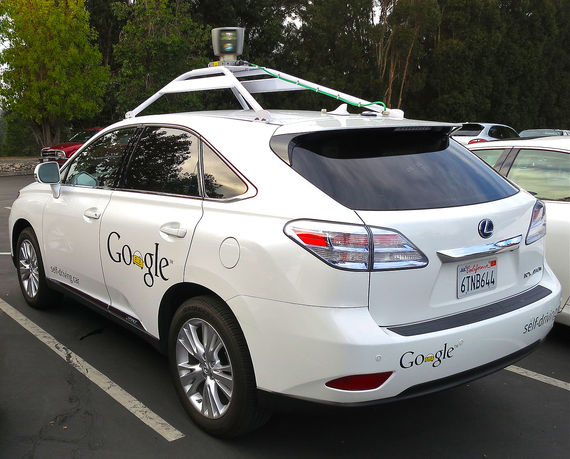I am working my way through Simon Schama's excellent History of Britain.
I am into the third volume, 1776-present. At the moment we are in the middle of the Enlightenment.
This was a fascinating time in Western history. Adam Smith, Thomas Hobbes, Francis Hutcheson -- the world was suddenly filled with radical and new political ideas that would change the world. These men, and people like them, were both the contemporaries and the forerunners of Madison, Hamilton, Jefferson and Franklin -- the people who invented the concept of the United States. It was an incredibly exciting time -- at least in the world of politics.
Today's politicians no longer represent the best in radical thinking or new ideas. They are, at best, managers. They are not creative. They are not radical new thinkers. Not hardly.
There are, however, radical new thinkers in the world today.
But you don't find them in Washington or London.
You find them in Mountainview or Cupertino. You find them working at places like Apple or Google (or Twitter or Facebook). These are the radical new thinkers who are shaping our world and whose work and ideas are going to shape our futures -- far more than people like Hillary Clinton or Jeb Bush or even Donald Trump. In a world driven by technology, in all honesty, their ideas (if they have any) don't mean much anymore -- at least not compared to Google or Facebook.
The ideas of people like Adam Smith or James Madison created the architecture of the world in which we live today. What kind of world will the ideas of people like Sergey Brin or Mark Zuckerberg bring us?
There is an inherent difference. Smith or Hume or Madison were essentially political philosophers. Their goal was to unleash human potential through freedom of thought and action -- entirely new and radical ideas in the late 18th Century. Brin and Zuckerberg and their ilk are essentially engineers. Their goal is, more than anything else, to improve efficiencies. They are very good at this -- but is this very good for us? That is, what happens when we turn the architecture of the future over to engineers?
Let's look at the self-driving car.
In an interesting piece in The Guardian, Tim Adams takes a ride in Google's self-driving car. Adams, instead of being overwhelmed by the car, is astonished at how quickly he becomes completely used to the idea of being driven from place to place automatically. Clearly, this is going to work and this is going to happen and in the not too distant future, we are all going to be using Google's driverless cars as frequently and as commonly as we all use iPhones today.
One USP of driverless cars is that they will allow occupants to use time more productively, by which I imagine they mean conference calls or Googling. Soon, people won't even have to do that -- their phone will answer queries -- how long will it take? When can I schedule a walk with my wife? What do I have in the fridge for supper? -- before they are even asked. That ease apparently is, according to several enthusiastic vice presidents, what users want.
This is how the engineers create the architecture of our lives and our futures, much as Smith and Madison and Jefferson created the architecture of our lives until now.
But what happens when we turn our world over to engineers (instead of philosophers)?
The thing about a world of self-driving cars is that they will always take us from point A to point B accident free -- quickly, quietly and efficiently. What they won't do is let us get lost. Ever.
And getting lost is a very important part of the human experience.
Getting in a car and just driving off in search of whatever turns up -- not knowing where you are going -- is going to be lost forever. We will be more efficient, for sure -- and safer -- but will we be better off as a culture?
I am not so sure.
This is the problem with turning society over to engineers. While they love efficiency, they are not great a uncertainty, failure or serendipity. And in many ways, those elements are the most interesting aspects of the texture of the human experience. And all of this is about to be lost.
At least in the Enlightenment, people got to discuss and debate Madison or Paine's ideas. They got to vote on them.
No one got to vote on whether they thought Facebook was a good idea. No one will be able to vote on driverless cars.
This is going to happen.
And we are all going to live in the world that Brin and Zuckerberg are creating.
And no one will ever get lost again.
Too bad.

